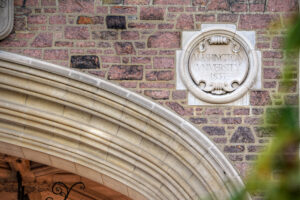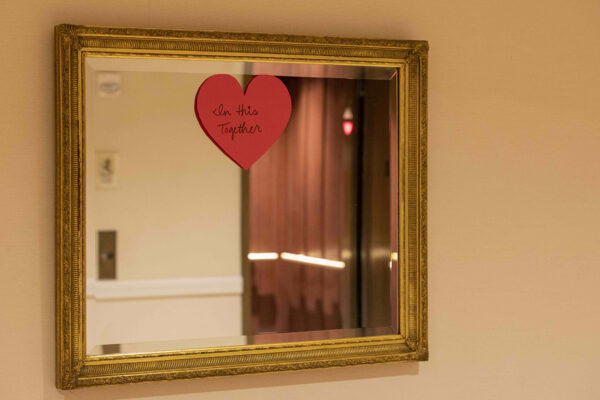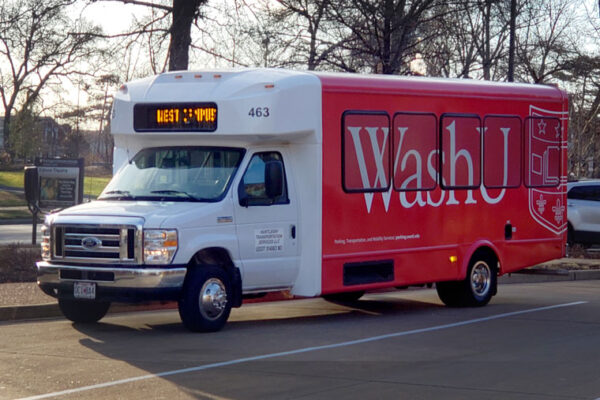
It is vitally important that all members of the Washington University in St. Louis community feel safe and have access to appropriate resources to support their safety. With this commitment in mind, the university has begun a process to examine public safety and policing on the Danforth Campus and in nearby neighborhoods.
This process will examine the ecosystem of university services, including wellness, that exist to support safety on and around the Danforth Campus, solicit feedback about how the university can best meet the safety needs of the diverse university community, and create structures for ongoing transparency and review. As an important first step, the university has formed a committee comprising students, faculty, staff and alumni to lead this critical work.
The formation of the committee and its intended work are among the concrete actions geared toward addressing systemic racism and its toll on our Black and marginalized communities that the university committed to taking in a message from Chancellor Andrew D. Martin earlier this summer. The committee will report to Executive Vice Chancellor Henry S. Webber.
“Washington University is a place that brings together a diverse group of students, faculty, staff and visitors from all over the region, country and world,” Webber said. “We know that members of our community perceive and experience their safety differently based on their life experiences, and that, for many, those experiences include acts of discrimination and bias based on their identities. This summer we have witnessed unspeakable acts of violence against Black people at the hands of law enforcement officers and we know that similar events have occurred throughout our nation’s recent and more distant history.
“As the role of policing has once again been brought to the forefront of our national conversation, we are taking this opportunity to engage in a collaborative process to evaluate the constellation of safety and security services we provide to make sure we are meeting our collective needs. This includes the Washington University Police Department as well as a range of other current or potential services that could be provided by other units.”
Key topics in the charge to the committee include:
- exploring how different constituencies define safety and how university resources, including wellness services, can be developed to be more responsive to these needs;
- increasing transparency into existing public safety services such as campus security and police presence, including reporting of critical public safety data and information;
- examining the role and scope of the Washington University Police Department (WUPD) and campus security personnel;
- bringing the university community together to imagine the roles for various services on campus, such as social workers and police officers, and additional services the university might not yet have; and
- creating a sustainable platform for listening to members of the university community, to include enhanced and improved mechanisms for community feedback about campus safety and well-being.
The committee will be co-chaired by Gerald Early, the Merle Kling Professor of Modern Letters, professor of English and chair of African and African American studies, all in Arts & Sciences; and Stephanie Kurtzman, the Peter G. Sortino Director of the Gephardt Institute for Civic and Community Engagement. The committee — which will be staffed by Richard Payton, chief of staff to the executive vice chancellor and chief administrative officer, and Travis Tucker, associate director of the Center for Diversity and Inclusion — also includes:
- Ezinne Arizor, international student and scholar adviser
- Lawton Blanchard, junior
- Sheretta Butler-Barnes, associate professor, Brown School
- Kurt Dirks, vice chancellor for international affairs and the Bank of America Professor of Leadership, Olin Business School
- Kirk Dougher, associate vice chancellor for health and wellness
- David Dwight IV, Washington University graduate and executive director and lead strategy catalyst at Forward Through Ferguson
- Adin Ehrlich, senior
- Tyler Gahrs, graduate student, Arts & Sciences
- Tennyson Holmes, junior
- John Inazu, the Sally D. Danforth Distinguished Professor of Law & Religion
- Michael F. Jones, associate director of community science, HomeGrown STL: Race and Opportunity Lab, Brown School
- Yiwei Liu, graduate student, Brown School
- Leroy D. Nunery II, Washington University MBA graduate and founder and principal of PlūsUltré LLC
- Cass Oliver, law student
- Enola Proctor, the Shanti K. Khinduka Distinguished Professor Emerita, Brown School
- Jon Silva, associate professor of biomedical engineering, McKelvey School of Engineering
Mark Glenn, the university’s chief of police, will serve as an ex officio member to provide insight to the committee.
The committee will deliver a set of findings and draft recommendations to Webber early in the spring semester.


